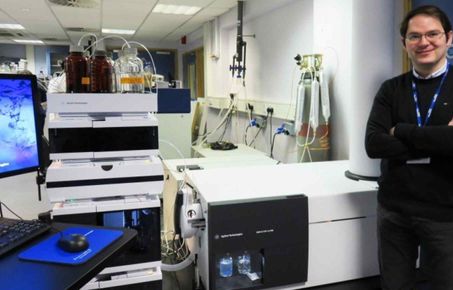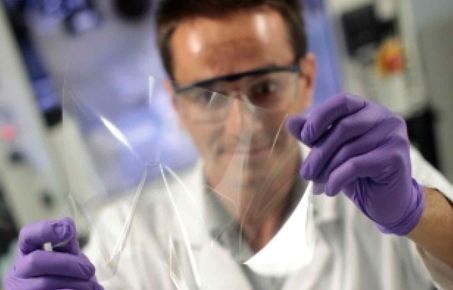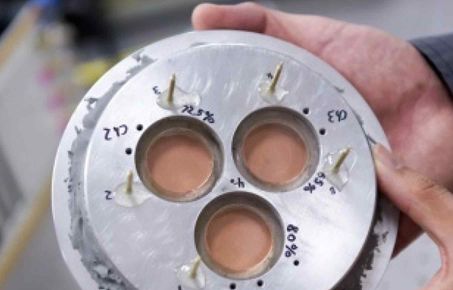Imperial is home to the greatest concentration of high-impact research of any major UK university. Our Faculty’s world class research offers exciting opportunities for collaboration and commercialisation.
We strive to provide an environment where partnerships and commercialisation activities between academia and industry can flourish, enabling us to work towards solving global problems.
If you are interested in collaborating with our outstanding researchers, we offer exceptional and compelling opportunities for engagement, and look forward to talking with you.
Why work with us?
- Gain exposure to world-leading research
- Utilise educational and training excellence
- Connect to expertise in translation and knowledge transfer
- Collaborate with world-renowned academics
- Access a global pool of talented students
- Join a network of partners and public funding bodies
- Grasp the opportunity to influence of a global scale
To discuss opportunities to licence technologies or partner on collaborative research that could generate new intellectual property, contact the Director of IPC for the Faculty of Natural Sciences, Dr Viraj Perera, on v.perera@imperial.ac.uk.
What should you know?
How to work with us?
Collaborative research
- Working with Pharma
Researchers within our Department of Life Sciences are working with GSK to help them understand the mechanisms of action of a group of receptor proteins and aid effective drug design.
The Japan-based pharmaceutical company, Ono Pharmaceutical Co Ltd, and researchers within the Departments of Life Sciences worked together to develop new technology useful for identifying novel compounds targeting sodium channels. - Working with the Food Industry
Imperial’s Centre for Synthetic Biology and Innovation is working on a number of projects with Dairy Crest to investigate how synthetic biology applications may improve the quality, sustainability and freshness of their products.
Researchers in the Department of Life Sciences and the MRC Centre of Molecular Bacteriology and Infection are collaborating with the French company, Danone Research to develop and test probiotic dairy fermented products. - Other case studies
Collaborative consortia and collaboration through training
Collaborative consortia
Researchers from across our departments work with a number of companies in consortia. AGRI-net facilitates the translation of novel tools and technologies, bringing together chemical biology and agri-science research communities from academia and industry in partnership with policymakers to develop research targeted at the grand challenge of crop sustainability.
Pharmacat fosters collaboration between chemists, chemical engineers and industry (AstraZeneca, GlaxoSmithKline, Pfizer, Syngenta and Lilly) to support pre-competitive research in the area of the catalysis of organic reactions. Aims include developing innovative chemical technologies to effect best routes and processes for the production of pharmaceuticals, incorporating quality-by-design, as well as better environmental credentials.
Collaboration through training
Our Department of Mathematics has a number of industry sponsored studentships from Citigroup, Lloyds TSB, Nomura and RBS covering research areas such as probability and stochastic analysis. Such collaborations offer both the students and academics connections and insight into the commercial environment.
Researchers within our Centre for Environmental Policy are collaborating with the Veolia Group in the Veolia Imperial Pathfinder Programme (VIP Programme) to develop and deliver academic training, research and innovation. The aim of the programme is to implement environmental and economic sustainability more quickly and efficiently into the world of business.
Facility Sharing and Technology licensing
Facility Sharing
Through a partnership with Agilent, the research instrument manufacturer, the Department of Chemistry obtained access to complex and expensive equipment and exposure to industrial practices for its students.
In exchange for use of Chemistry’s clean laboratory environments and specialised infrastructure, the company housed an atomic force microscope in the department as part of a demonstration site, enabling students to be taught hands-on research and instrument testing skills.
Technology licensing
Access technologies from one of the world's most innovative universities
Ranked as the second most innovative university in Europe, and in the top ten in the world, Imperial College London is home to world-leading academic researchers. Technologies developed in our labs have been commercialised in fields as diverse as automotive, electronics, diagnostics, therapeutics, medtech and software.
The Industry Partnerships and Commercialisation (IPC) team connects industry to the amazing technologies developed at Imperial. With the team's experience managing the process of translating technology from the laboratory into commercial practice, they understand what is important to business. Team members have conducted licence deals with businesses ranging from startups to major global companies.
We welcome enquiries from companies interested in taking a licence on technology developed at Imperial.
Who we work with?
Who we work with (row 2)
Who we work with (row 3)
Contact us
For Industry Partnerships and Commercialisation enquiries within the Faculty of Natural Sciences, complete our short form.








